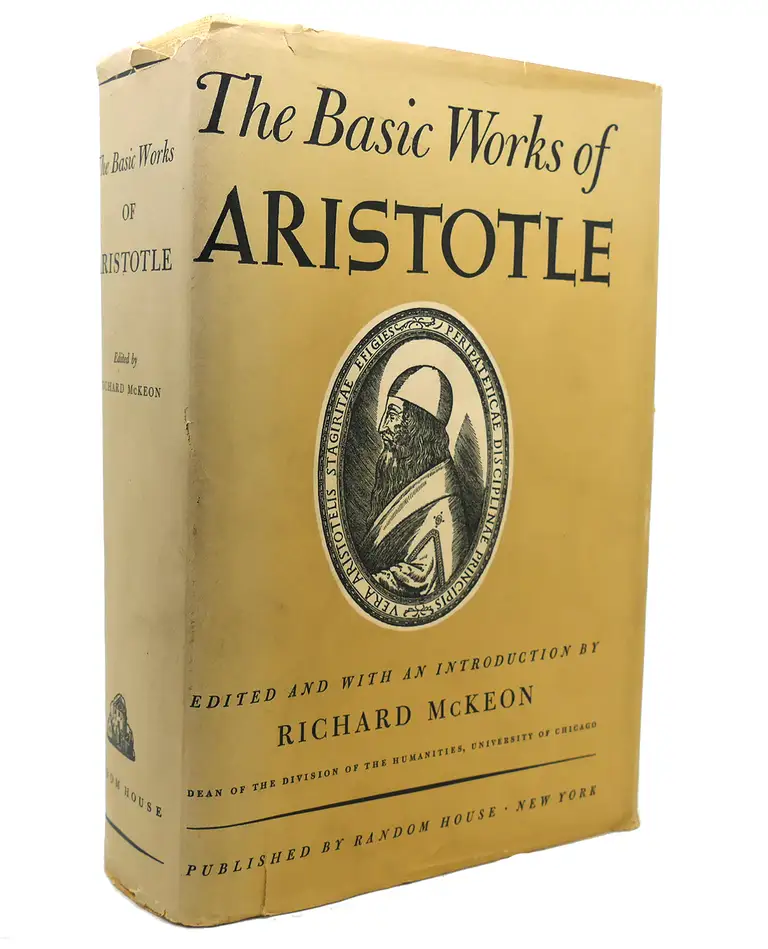Original language: Greek.
I used The Basic Works of Aristotle, edited by Richard McKeon, published in 1941 by Random House.
I read Nicomachean Ethics, translated by W.D. Ross, and Poetics, translated by Ingram Bywater. McKeon used the Oxford translation of Aristotle, which he says in the Preface was completed in 1931.

Nicomachean Ethics
We don’t know why the work has this title, though Aristotle’s father and son were both named Nicomachus.
Until recent times, philosophy was fed by natural science, political science, economics, even medicine. In Aristotle’s time and for centuries afterward, there was no separation between natural science and philosophy.
I was a little afraid to approach Aristotle because I remember his work being difficult from my one undergrad philosophy course. (I’m grateful to the late Prof. Carlos Noreña, then of UC Santa Cruz, for his inspiring teaching.) But on this reading I didn’t find Aristotle difficult. It requires attention, but it is not in itself difficult to understand. I enjoyed the precision of his thinking. I may have been helped by the excellent translation.
Nicomachean Ethics is full of practical advice. Some of it reads like a self-help book of today. It contains a lot of detailed discussion on the definitions of justice, practical wisdom, deliberation, and other mental states. Aristotle makes very subtle distinctions between different qualities of mind.
I disagreed with Aristotle on a few minor points, but nothing worth mentioning.
The middle section was a little dull, but it gets better at the end, when Aristotle says that the happiest life of man is to contemplate philosophy.
Poetics
Aristotle was a great thinker, a great systematizer and definer. He wasn’t afraid to lay down rules (Tragedy is this, Plot must have that), that might be controversial. He knew Greek drama and poetry very well, in fact he seems to have had an encyclopedic knowledge of it.
I think the biggest value of the Poetics is Aristotle’s definition of tragedy and his quite long discussion of the factors that make it succeed or fail.
Tragedy is essentially an imitation not of persons but of action and life, of happiness and misery. All human happiness or misery takes the form of action; the end for which we live is a certain kind of activity, not a quality. Character gives us qualities, but it is in our actions — what we do — that we are happy or the reverse.
Leave a Reply